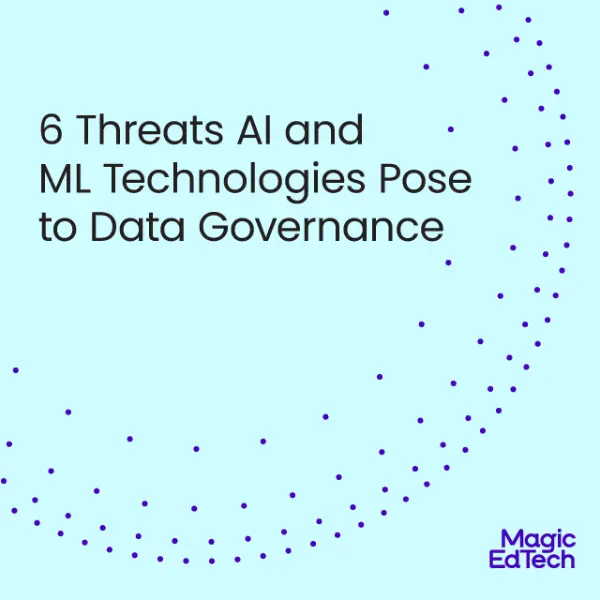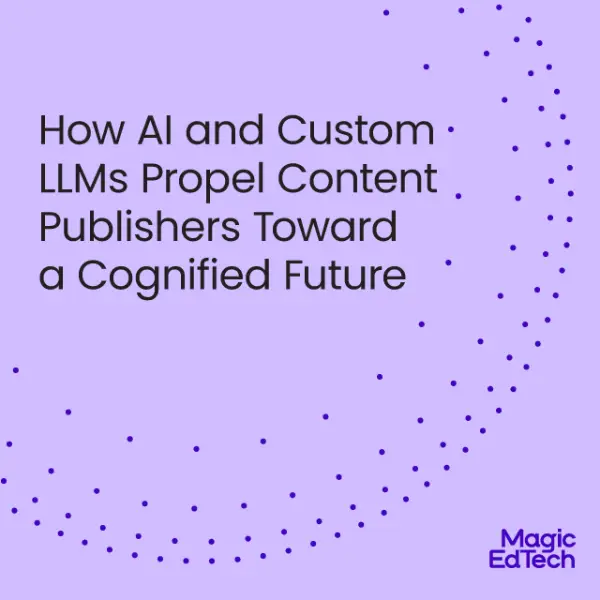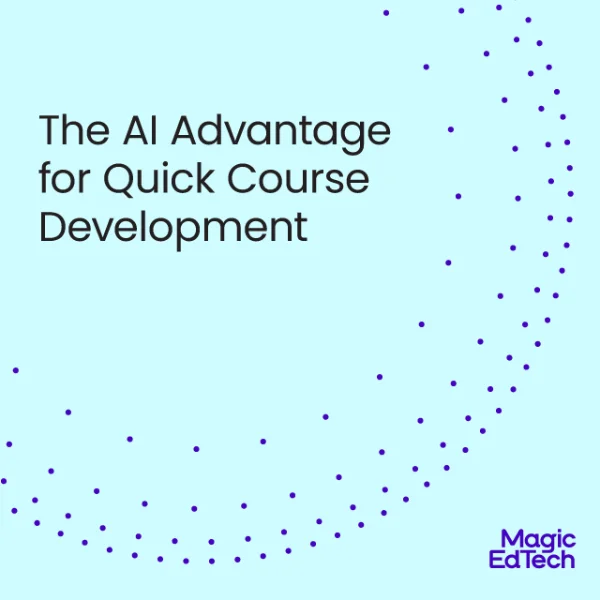Unlocking Data-Driven Learning Success Using AI
- 13 October, 2023
- Reading Time: 3 mins
In the multifaceted realm of modern education and training, stretching from K12 classrooms to corporate boardrooms, the definition and trajectory of learning are increasingly determined by innovative digital tools and methodologies. While the foundational pillars have been interoperability and learning standards, the dawn of the AI era, notably with the advent of large language models, is setting new benchmarks.

By harnessing the power of AI, we’re poised to not just optimize costs but to usher in heightened efficacy in learning across varied sectors – K12, HigherEd, Corporate, and Workforce training. Dive in as we unravel the myriad potentials of this integrated approach.
1. Interoperability to go Beyond Just Cost Savings
Seamless integration of diverse educational platforms stands at the forefront of optimizing learning resources. From universities balancing vast digital tools to corporations streamlining employee training, the synergy of interoperable systems translates to notable savings in time and finances.
Example: Consider a university that, by interlinking its Learning Management System (LMS) with alumni relations and recruitment tools, enhances the student experience from enrollment through to alumni stages.
2. Data-Driven Insights Across Markets
The cross-talk of interoperable platforms helps us extract comprehensive insights. These data touchpoints, spanning learner engagement to performance metrics, become invaluable in refining educational strategies.
Example: In the corporate sector, discerning which training modules most resonate with employees can significantly refine and enhance HR’s approach to professional development.
3. Customizing Learning Journeys
An interoperable framework, enriched by data, holds the promise of personalized learning narratives. Such tailored experiences are becoming non-negotiable across sectors.
Example: In the context of workforce development, acknowledging an individual’s existing expertise and dovetailing advanced training can enhance the learning impact.
4. The Pivotal Role of Learning Standards
Across every educational vertical, the embrace of universal learning standards is non-negotiable. Such standards guarantee:
a. Consistency Across Platforms: This could mean a K12 institution aligning curricula with national benchmarks or a corporate entity ensuring its training modules adhere to industry best practices.
b. Tailored Learning Solutions: From university scholars to corporate trainees, a standards-aligned approach ensures precision in resource allocation.
c. Future-Ready Adaptability: Be it HigherEd spaces, navigating curriculum shifts, or corporations responding to industry flux, a standards-centric approach ensures agility.
5. AI and Large Language Models: Bridging the Data Gaps
The promise of AI, especially large language models, is transformative for the educational landscape:
a. Addressing Data Voids: In the K12 arena, AI can project learning outcomes, offering educators real-time insights. For HigherEd, it might forecast enrollment trends or potential academic challenges. In the corporate world, AI can pinpoint existing skill voids, proposing targeted training.
b. Enhanced Data Governance: AI can oversee data quality, validation, and consistency, flagging and rectifying discrepancies, which ensures integrity across systems.
c. Personalized Learning Pathways: AI’s capability to discern a learner’s inclinations and styles ensures the delivery of customized tools and resources, irrespective of the learner’s stage or sector.
Example: For workforce training, AI, after analyzing module efficacy, could proactively suggest enhancements or spotlight areas necessitating more comprehensive training resources.
6. Efficacy for Diverse Learner Levels
The convergence of interoperability, learning standards, and AI promises greater learning efficacy. From K12 students relishing tailored learning arcs to corporate employees accessing role-centric training, the emphasis remains on delivering optimized and effective learning experiences.
The fusion of interoperability, learning standards, and AI isn’t just a march toward technological integration; it’s a clarion call to unlocking unparalleled learner success across all domains. By internalizing these principles, we’re not merely optimizing resources; we’re guaranteeing that every learner, irrespective of their backdrop or domain, embarks on a cohesive, personalized, and data-enriched educational journey.




